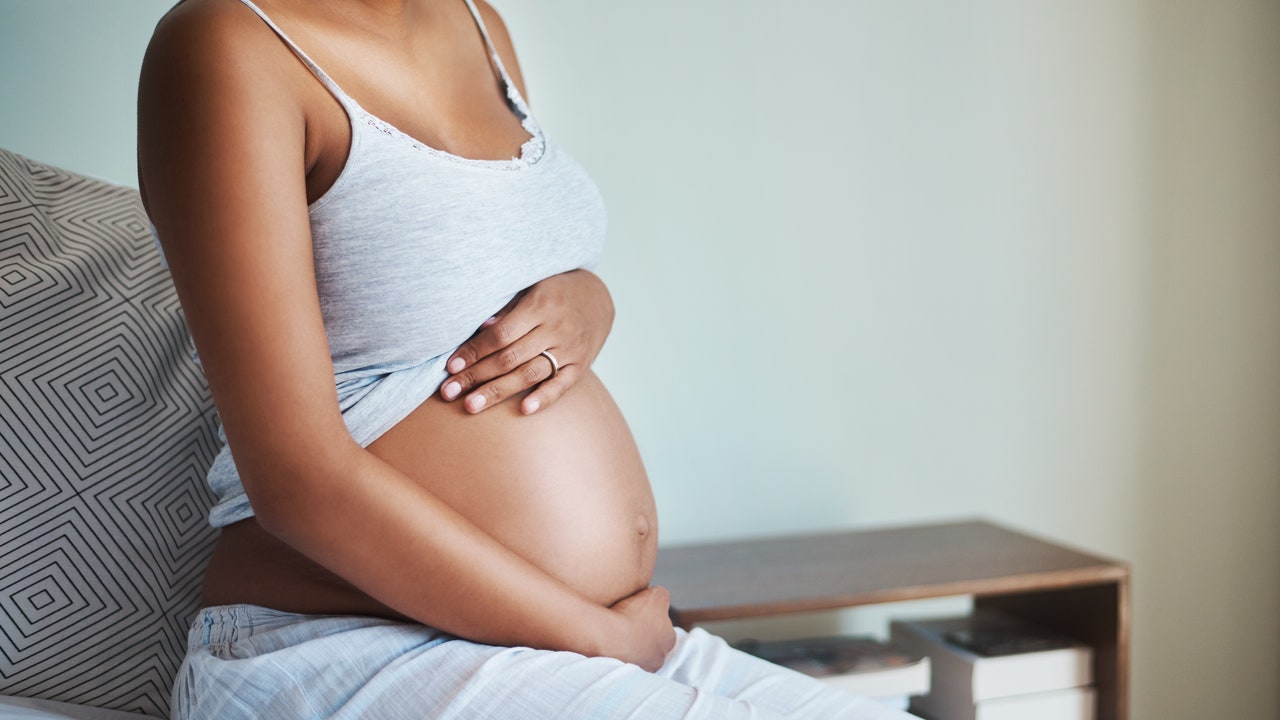Black Women Deserve an Equitable Path to Motherhood

[ad_1]
Black women in the United States are three to five times more likely to die from pregnancy or postpartum issues than white women—a maternal mortality crisis that cannot be ignored. In Glamour’s Black Maternal Health series, we’re sharing these stories—and solutions.
One week after my 32nd birthday the hot flashes began. In 2.5 seconds my body went from New York City in fall to a Thailand summer, whether it was in the middle of the night, middle of the morning, midday, mid-work break. The sweats were relentless.
Two weeks, one doctor’s appointment, and more than a hundred Google searches later, my doctor put a name to this sudden inferno: early perimenopause. A short time after that, the financial coordinator at New York University’s Fertility Clinic let me in on something. If I wanted to retrieve the good eggs I had left to increase my chances of having a baby down the line, it would cost me—cash up front—much more than I had to give.
My reproductive rights story doesn’t involve limited access to birth control or an abortion. It involves being told just two years after turning 30 that my path to motherhood could be forever thwarted, and I, a journalist with employer-sponsored insurance making just enough money at the time to cover my monthly expenses, could not afford to do anything about it.
The tears I cried over this realization are just a few in a sea of fallen tears from women. And Black women, I among them, understand that the current framework for reproductive justice must address the various ways in which systemic structures prevent women of color from achieving reproductive freedom.
“The harms that were created through white supremacy, the harms that were created through patriarchy—they came from the White House,” says Joia Crear-Perry, M.D., president of the National Birth Equity Collaborative. “So we’re saying if you created those harms from the White House, you need to undo them from the White House.”
Crear-Perry is one of several Black women pushing for the creation of a White House Office of Sexual and Reproductive Health and Well-Being (OSRHW) to be considered under the Domestic Policy Council.
As she said to me on a video call last week, the federal government has for hundreds of years “operationalized eugenics, has operationalized believing that one race was more valuable than another.” And so her goal for this office is to ensure that women like myself have a path to motherhood and sexual well-being by disrupting the barriers that now exist due to race and class.
She’s not alone. More than 150 organizations have signed on to push for OSRHW. They include institutions whose core work focuses on a range of issues from Black breastfeeding to abortion. Collaboratively, they are urging the Biden administration to guarantee that women, in short, have access.
“The matter of reproductive justice is so important because what we’re talking about is wanting to create some parity where everyone gets what they need, not based on their capacity to pay, or if they’re lucky enough to work at an insurer,” says Monica R. McLemore, Ph.D., an associate professor at the University of California, San Francisco. “This is a bigger discussion that takes out the polarization and elevates it to a larger discussion about what people need and deserve across their reproductive life course that will allow them to optimize who they are.”
McLemore has been working side by side with Crear-Perry to highlight the importance of equity in the larger conversation of gender policy and reproductive rights. For these Black women, it is about centering the margins, being unafraid to speak about racial injustice, and saying full-throated that ending racism includes addressing the ways in which BIPOC women are restricted in their maternal pursuits.
[ad_2]
Source link




